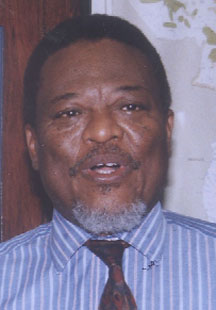The announcement earlier this month by the Canadian-based oil and gas exploration company, CGX Energy Inc that a semi-submersible drilling rig is due to arrive in Guyana by month end to commence offshore drilling for oil appears to have gone largely unnoticed by Guyanese as a whole; never mind the fact that the announcement clearly seeks to provide the country with a definitive signal that we might now have inched much closer to becoming an oil-producing country.
Part of the reason for the seeming indifference almost certainly has to do with the fact that, over the years, from as far back as the 1970s, successive governments have repeatedly pronounced on Guyana’s potential as an oil-producing country without that prospect being realized. In effect, hopes of an oil find that would rapidly transform the country’s fortunes by both earning significantly increased levels of foreign earnings, and bringing an end to the country’s energy woes which have both seriously constrained the growth of the productive sectors of the economy and undermined the quality of national life, have long been dismissed by many as little more than a fanciful story. Government too, by exploring alternative energy pursuits, particularly hydropower, appeared to have long decided that economic growth could not wait around for the arrival of oil wealth.
What, in very recent years, has served to further diminish popular interest in the country’s oil prospects are the disappointments and delays that had come to be associated with the oil-hunting pursuits of CGX. The Canadian company currently holds three licences offshore Guyana extending roughly 400 kilometres from the country’s border with Venezuela in the north to the Suriname border in the south and it is the Guyana/Suriname sedimentary basin, an area estimated by a 2000 United States Survey Geological Survey to contain 15 billion barrels of oil. It is this area that will be the focus of the forthcoming drilling operation. It is this area too that has been the subject of a controversy with neighbouring Suriname, delaying CGX’s oil search. The company’s attempts in 2000 to begin drilling operations at its Eagle Mountain offshore location, having been granted a licence two years earlier by the Guyana Government, were thwarted by the intervention of Surinamese gunboats. Guyana’s eastern neighbour had insisted that the area where CGX was seeking to drill fell under its own maritime jurisdiction. It took seven years including a painstaking period of international intervention for a determination to eventually be made that the Eagle Mountain area fell well within Guyana’s maritime boundaries. Since the settlement have been more delays to the long-awaited drilling process and even now we are in a period of extension of the December 2011 deadline set under the contract between the Government of Guyana and CGX for commencement of the drilling exercise.

Guyanese were again being handed more reasons to believe that the eventuality of oil was, in fact, no more than a pipe dream.
Not even what now appears to be the imminent arrival of the oil rig from the Gulf of Mexico has generated any real national excitement. Rather, we find ourselves in a zone of cautious optimism, holding fast to the axiom that seeing is believing.
News of the prospects of offshore drilling in Guyana’s maritime waters, however, have sparked yet another round of the kind of officially-driven hype evidenced in previous years. Indeed, an article published in the January 6 issue of the state-run Chronicle appeared unable to resist putting an exaggeratedly upbeat spin on what the commencement of offshore drilling operations could mean for the country’s future. Overlooking, it appeared, both the protracted processes and procedures that must precede the spending of a single dollar earned from oil the Chronicle forthrightly pronounced on “the power of oil, coupled with gold, sugar, rice, timber, bauxite and magnesium,” asserting that, taken together, these “would certainly find Guyana climbing a few rungs on the world economic ladder.” It was the premature nature of the prognosis rather than its likely eventual truth that reposed therein that stood out.

Such pronouncements are indeed decidedly premature, to put it mildly. Beyond the drilling process which CGX hopes to begin undertake in a few weeks time, the meaningful economic exploitation of oil resources must be preceded by the building of an ‘oil infrastructure’ that includes the creation of a regime of legislation and attendant regulations to address, among other things, the management of the resource, and the protection of the environment. That process, in itself, will take some years.
In November last year, a visit here by an expert delegation from Canada’s New Found land and Labrador Offshore Petroleum Board enabled discourses with state officials and local energy sector stakeholders at a forum titled “preparing for offshore energy resources – the Atlantic/Canada experience”. The forum was intended to provide a clearer understanding of just what it will take for Guyana to call itself an oil-producing country. More than that, by the conclusion of the forum other things would have become clearer to local stakeholders including, critically, the fact that an infusion of oil wealth does not necessarily bring with it the dramatic positive transformation of an economy.
The forum provided local participants with insights into the complexities associated with the creation of an oil infrastructure ranging from regulatory framework requirements to mechanisms to cover such issues as accountability, investment of oil funds, the creation of a competent human resource pool and environmental a safety issues. The creation of this critical infrastructure remains some distance away.
It may, hopefully, turn out to be a piece of good fortune that the seeming prospects for Guyana becoming an oil-producing country coincide with the appearance of a surfeit of studies some of which address pitfalls that have resulted from the mismanagement of oil countries’ oil resources. It will be recalled, for example, that during the period of high oil prices and low interest rates in the 1970s, a number of developing oil-producing countries secured huge loans from foreign banks to finance costly and, in many instances, inefficient projects. A decade later their creditworthiness had declined with the collapse of oil prices.
Other studies, including one undertaken by University of California’s Associate Professor in Political Science Michael Ross have pointed to other negative effects which the creation of an oil economy can have on countries. Ross suggests that over-reliance on oil can impact on governments’ responses to the needs of their citizens. He argues that oil-rich countries often do less to help their poor than countries without oil and that some such countries remain plagued by lower literacy rates, score lower on measures like the UN’s Human Development Index, and have higher child mortality and malnutrition.
While increased oil earnings are likely to trigger job-creation in other sectors of the economy, oil, unlike agriculture – which up until now has been the mainstay of the Guyana economy – employs few unskilled people.
Then there is the issue of corruption. Here, Professor Ross points to the tendency for oil wealth to become highly concentrated so that it tends to pass through only a few hands and is therefore far more susceptible to misdirection and corruption.
Last November’s forum in Georgetown dealt with many of these issues and it was Prime Minister Sam Hinds himself who pointed to the possible consequences of failing to create an effective regulatory framework for the management of the country’s oil resources, alluding to countries where such failure had led to runaway graft and corruption.
How to maximize its oil resources while retaining the environmental protection commitment given to the international community within the framework of the Low Carbon Development Strategy (LCDS) is another challenge which Guyana will have to face. Oil exploitation, either onshore or offshore, carries with it the risk of accidents that can result in environmental disasters, like the March 1989 Exxon Valdez oil spill in Prince William Sound, Alaska which saw volumes estimated at between 260,000 and 750,000 barrels of oil. The attendant damage resulted in the collapse of the local marine population, destroyed recreational sports facilities and significantly reduced tourism in the area. Environmental cleanup and compensation costs ran into hundreds of millions of dollars.
If there are now clearer signs that the hunt for oil in Guyana is about to enter a decisive new phase and that, perhaps, a somewhat greater measure of anticipation might be understandable, the disappointments of the past plus what we now know about the various complex issues that attend the creation of an oil economy ought to continue to temper our exuberance. If it is true that what would appear to be the imminent commencement of drilling in the Guyana/Suriname basin could mark what the Chronicle article suggests might be “a new beginning for all Guyana,” its suggestion that the advent of oil should usher in “people’s involvement at all levels of development of the society” appears more than a trifle patronizing since it is no secret that given the highly specialized pursuit that is, the process of drilling for and extracting oil is likely to be confined to a relatively narrow group of what we loosely call stakeholders including government officials, the Canadian investor and the specialists directly involved in the drilling process, few if any of which are likely to be Guyanese. More than that the Chronicle’s exhortation that the imminent commencement of the drilling exercise ought to trigger a greater tendency for us to “respect, trust and love each other” appears more than a trifle patronizing given the manifest available evidence that trust, particularly, has long been an elusive virtue in our political culture. In the final analysis it is perhaps how quickly we learn the lessons to be derived from the experiences of other countries – lessons that have to do with scrupulous attention to laws and regulations, respect for the environment, the utilization of oil resources for the enhancement of the quality of life of our people and guarding against the scourge of corruption that has become prevalent in our country and which derailed the economies of other oil-producing countries – that will make the difference.





